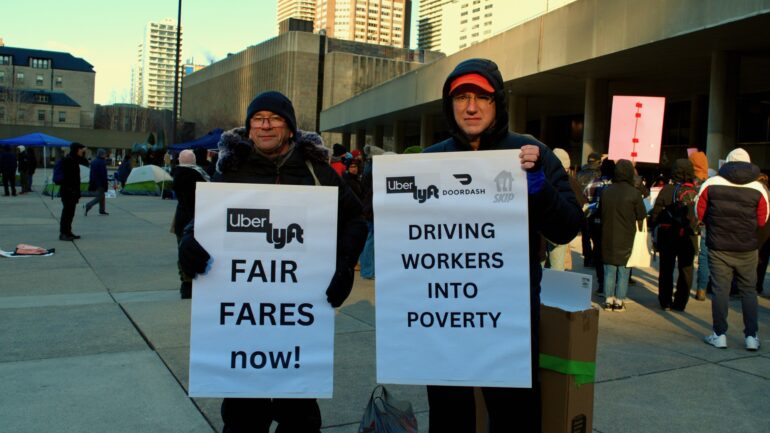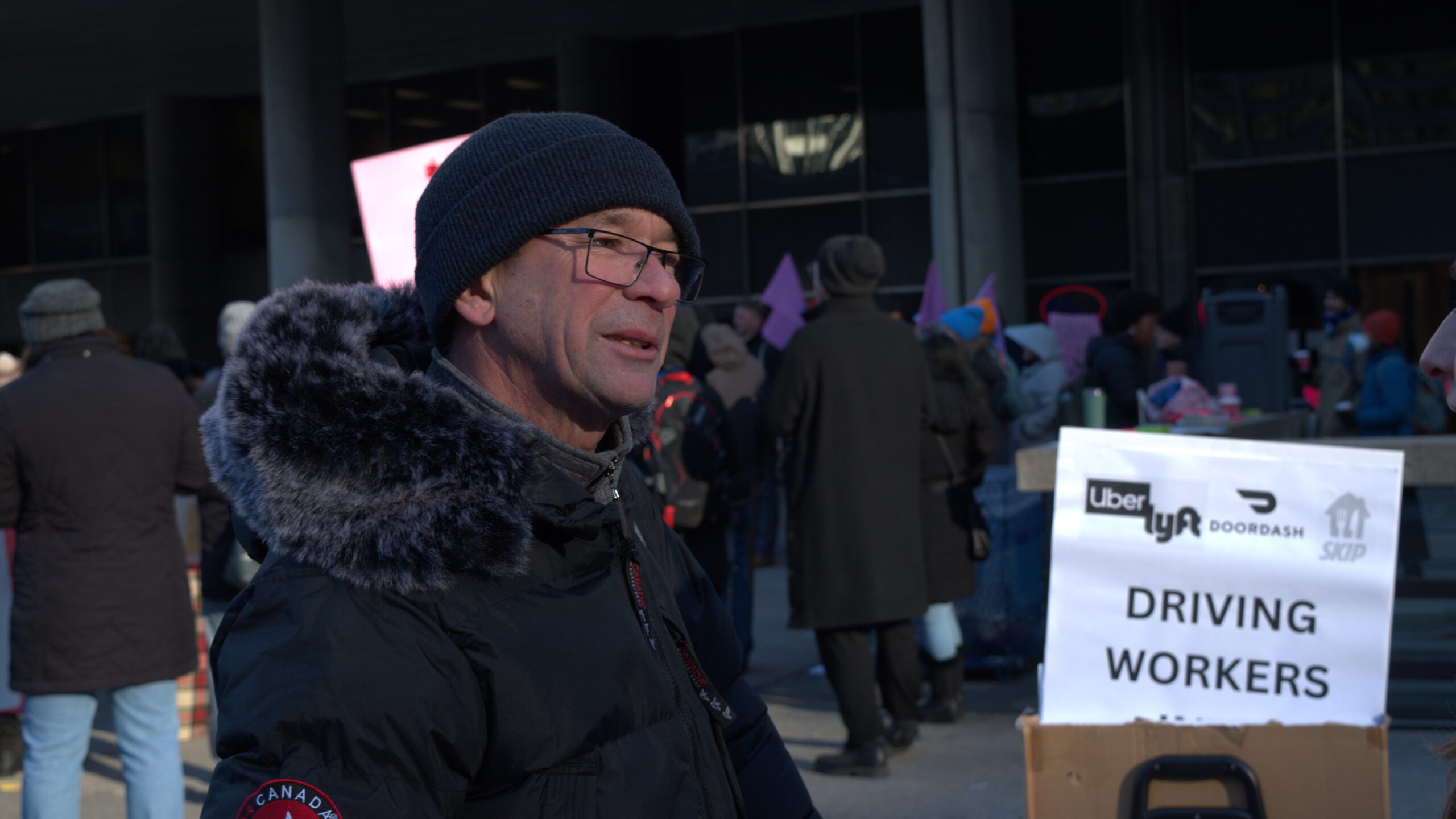In Toronto, gig workers gathered in front of Nathan Phillips Square on Feb. 14, ready to march to the Uber corporate offices just blocks away.
George Wedge, president of the Rideshare Drivers Association of Ontario, stood in front of a small crowd, holding a sign that read Fair Fares now.
Wedge said he feels the relationship between Uber employees and corporate Uber is inequitable.
“They take a lot more than they give drivers. So if we look at the relationship, we have to understand what it is. Uber wants to say we’re independent contractors, yet we have no ability to negotiate our own contract,” he said.
Uber is only one employer that offers gig work in Canada. The federal government said this type of work is quickly growing.
The government defines gig workers as workers in casual work arrangements with short-term contracts to complete specific and often one-off tasks that is often facilitated by new technologies such as digital platforms
On top of vehicle fees, driving fees, and inappropriate passengers, Uber drivers across Canada said they are upset with the payout they receive from the multi-billion dollar company.

Uber takes 25 per cent commission from every ride, leaving drivers unhappy with minimal pay for maximum effort. Photo credit: Brandon Harris
Wedge said Uber takes 25 per cent commission out of each ride. He also said Uber regulates how much the driver gets per kilometre with a passenger and for each minute with a passenger.
“They answer the phone and send a rider’s name to us. What agent gets 25 per cent? That’s ridiculous. And then a booking fee for the customer on top,” Wedge said.
The Digital Platform Workers’ Rights Act, which was passed by Queen’s Park in 2022 but has not been activated, said gig employees will have transparency with their employers and support through fair wages.
The act stated its purpose is to uphold gig employers to have “certain worker rights and protections that apply to all digital platform workers (as defined), regardless of whether those workers are employees.”
Azazhi Abu, 29, said his part-time job can, at times, cost him money rather than pay him fairly for his time and commitment. He said Uber charges each driver many fees in Toronto, from insurance to deductibles.
“We don’t get paid if we are waiting in traffic,” Abu said. “One time I was in Toronto, the highway Gardner was closed due to the cycling event. It was summertime…and I drove for 38 minutes, and the air conditioning was on.”
He said he was only paid for the initial 10-minute ride.
Abu said Uber charges each driver $34 a year to renew their background screening and enforces a yearly renewal of vehicle safety that can cost up to $100.
Wedge said the Rideshare Drivers Association of Ontario has been working with the provincial government to get put under the Employment Standards Act (ESA).
“We’re workers in Ontario, put us in there,” he said.
Wedge said he hopes the protest brings attention to the pay inequality he said drivers receive.
“We need the public to understand how the equity in this is so disproportionate,” he said.
“If riders understand that the lion’s share of what they pay goes to the big corporations, they might be able to help us,” Wedge said. “Apply some pressure to get some fairness across the board.”

